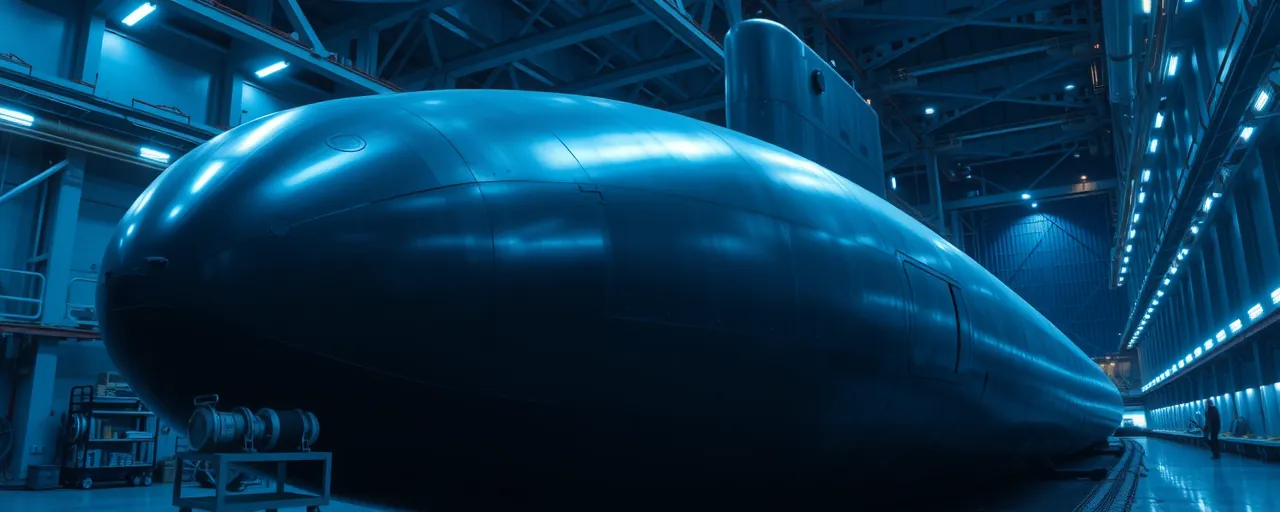A Bold Step for Naval Strength
In Pennsylvania, the Defense Logistics Agency Maritime Mechanicsburg has finalized a $5 billion contract with six small businesses. Named the Maritime Acquisition Advancement Contract, this agreement accelerates support for Virginia-class submarines and surface ships. The goal is clear: ensure the U.S. Navy maintains its maritime dominance in an era of growing global challenges.
This deal focuses on delivering critical equipment and services faster. Virginia-class submarines, prized for their stealth and adaptability, are vital to the Navy's strategy. By streamlining procurement, the agency aims to keep these advanced vessels ready for action, addressing delays that have long plagued defense logistics.
The Power of Small Businesses
Choosing small businesses for this contract reflects a deliberate strategy. These firms, known for their agility, bring fresh ideas to complex projects. In 2024, small businesses earned $176.1 billion in federal contracts, showing they can handle major responsibilities. For the Navy, this translates to quicker access to specialized submarine and ship components.
The contract's design, with five one-year options that could push its value to $10 billion, provides these businesses with stability. It also ties into efforts to strengthen the defense industrial base. Initiatives like the Defense Department's Mentor-Protégé program have equipped small firms with the skills needed to meet the Navy's high standards.
Cutting Delays, Boosting Readiness
Speed is everything in defense logistics. The Navy's plan to build two Virginia-class submarines each year depends on timely delivery of parts. Past delays in sourcing components have slowed progress, but this contract aims to change that. Agency officials estimate it could reduce procurement timelines by up to 50 percent.
Advanced tools underpin this effort. The Defense Logistics Agency now uses AI-driven systems to monitor supply chains, spotting risks like single-source suppliers before they cause disruptions. This contract builds on those innovations, ensuring shipyards and crews get what they need without unnecessary wait times.
Weighing Different Views
The contract has sparked varied reactions. Defense strategists highlight its role in national security, arguing that a strong submarine fleet is essential to counter threats, particularly in regions like the Indo-Pacific. They see the focus on speed as a response to recent calls for faster defense acquisitions, aligning with broader modernization goals.
Lawmakers focused on fiscal oversight urge caution, emphasizing accountability. Some lawmakers point to past defense contract missteps, like cost overruns or mismanagement, and call for tighter oversight. They stress that with defense budgets nearing $1 trillion, transparency is critical to ensure public funds are used effectively.
Beyond Submarines
This contract's impact reaches far beyond submarines. Its flexible framework allows other Navy units, from aircraft carriers to surface fleets, to benefit. The Defense Logistics Agency is actively promoting the deal to other commands and shipyards, aiming to maximize its value across naval operations.
The agreement also signals a shift in military logistics. Decades ago, the focus was on stockpiling supplies. Now, agility and domestic sourcing take priority, driven by lessons from events like the 2021 Suez Canal disruption. These changes aim to create a supply chain that can adapt to unexpected challenges.
The Road Forward
The Maritime Acquisition Advancement Contract sets the stage for a more efficient defense supply chain. By leveraging small businesses and reducing delays, it supports the Navy's ambitious modernization plans. Achieving two submarines annually is a tall order, but this deal provides a solid foundation.
Challenges persist, particularly in balancing speed with oversight. As the Navy expands, ensuring contracts deliver value without compromising quality will be crucial. Public confidence and military readiness depend on getting this balance right.
For now, the Navy, small businesses, and the Defense Logistics Agency are united in their efforts. The success of this contract will show whether it can serve as a blueprint for future acquisitions or highlight areas for improvement.
